Lesson
4
Tribal Government and Citizenship
|
|
|
Dakota, Lakota, and
Nakota societies have three units. These are bands, tribes, and
nations. Bands are called tiyospayes. They are small
groups that are usually related to each other. A group of bands joined
together is called a tribe, or oyate. A nation is all the
oyates together. In the old days, each band had a leader and a holy man. It had a
police force and special societies. These groups together made and
kept the laws.
Things changed in the 1800s. First, the
United States government created "Head Chiefs." This meant
that only one leader, or chief, could do business for each tribe or
nation. Then the reservations were set up. The old bands and tribal units
were not followed. Instead the Bureau of Indian Affairs made laws
for the tribes.
Then things changed again. It was
1934. The federal government passed a new law. It gave tribes the
right to set up governments. These new governments would be like
other governments in the United States. On the reservations, tribal
members wrote constitutions and voted on them. They set up governing
councils. They elected representatives. The
system is still
used today. In some ways, it is like the old days. Today there are
again three units.
|
|
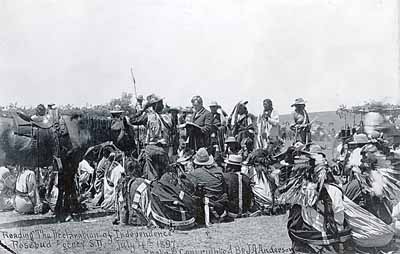
Photo courtesy of South Dakota State
Historical Society
|
|
|
|
|
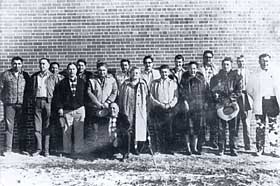
Photo courtesy of South Dakota State
Historical Society
|
At the tribal level is the tribal
council. On each reservation, tribal members elect officers. The
officers are a chairperson,
a vice-chairperson, a secretary, and a treasurer. There are also
representatives. They come from each
district on the
reservation. Council members are then put on
committees.
These groups make sure the work of government gets done. The tribal
council can speak for all tribal members. It can speak for the tribe
with state and federal governments.
|
|
|
Council representatives report to their
communities.
They do this in district councils. These are like the tribal council
but smaller. They meet each month. They talk about things at the
local level. Then their representatives take their ideas to the
tribal council.
South Dakota tribes also have the
National Sioux Council. It is made up of delegates from each tribe
in South Dakota. They meet each year. They talk about matters of
importance to all the tribes.
|
|
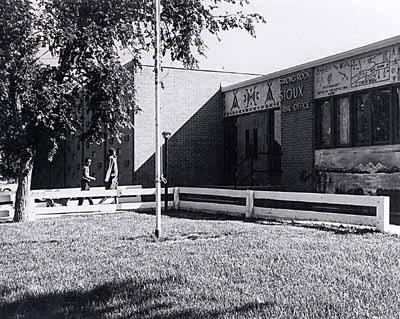
Photo courtesy of South Dakota State
Historical Society
|
|
|
Tribal government also has a judicial
branch. Each reservation has its own courts. They are similar to
circuit courts. There is also an appeals court. Five tribal
governments set it up. This was done in 1978. It is called an
intertribal appeals court. The Cheyenne River, Sisseton, Lower Brule, Crow Creek, and
Standing Rock reservations are part of this court.
Tribal governments and state
government have to work side by side. This relationship is not
always easy. To help, South Dakota set up the Department of Tribal Relations. This office is in Pierre. The head
this department is called the secretary. He or she works with tribal leaders.
|
|
Citizenship
|
Government is about people. It is about
making their lives safe and whole. Each person can take part. The
best way is by using the right to vote. By voting, you can pick
people to represent you in tribal, state, or national government.
You can choose people you think will do a good job. To do that, you
need to look at their goals for government. We vote for
candidates
whose ideas are like our own. Political parties help us know what
things are important to candidates. The most popular parties are the
Democratic and Republican parties.
|
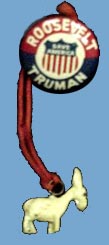
|
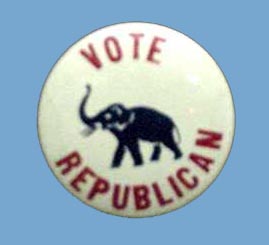
|
|
Photos courtesy of
South Dakota State Historical Society
|
How can you make a difference when you
are not yet old enough to vote? You can be a good citizen. What is a
good citizen? Good citizens follow the rules of society without
being forced. They find out about important issues. They let the
government know when it is doing a good job and when it is not. Good
citizens vote. They take pride in country, state, and tribe. They work to fix
things that are not right. Good citizens give time and energy to
make communities a better place.
|
| Vocabulary |
|
| candidates (n.), people seeking to be elected
committees (n.), small groups of people with jobs to do
communities (n.), social groups sharing government and
culture
|
district (n.), a part of a territory; a region
intertribal (adj.), between tribes
system (n.), combined parts of a whole
|
|
|